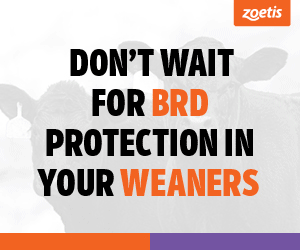A PROMINENT European food scientist says the influence of meat industry opponents should not be underestimated, with “flawed” scientific journals driving a series of anti-meat policies.
Belgium’s Frédéric Leroy is a fiercely independent scientist, who specifically doesn’t take funding from the meat industry and has led efforts to correct and amend scientific papers pushing for meat to be reduced or taken out of diets. He is also one of the architects of the Dublin Declaration, which has more than 1000 signatures from scientists recognising the essential role of livestock in food systems.
He held a livestock industry roundtable in Brisbane yesterday to discuss some of his work in trying to keep political and social agendas out of the scientific process and talk about a way forward for the industry. The meeting was hosted by Meat & Livestock Australia, with four different industry groups, the Federal Department of Agriculture and other scientists present.
 Europe has seen a wave of policies aiming to reduce livestock numbers and meat consumption in recent years – with The Netherlands and Ireland being some of the more well-publicised examples.
Europe has seen a wave of policies aiming to reduce livestock numbers and meat consumption in recent years – with The Netherlands and Ireland being some of the more well-publicised examples.
Dr Leroy said a lot of discussion about livestock in European politics was radical, unbalanced and had caught many scientists off guard. He told Beef Central the Australian industry should not underestimate “anti-livestock agendas”.
“The messages are so radical that it is not only about sustainable change it is about taking out big parts of current animal production – some even wish to abolish animal production,” he said.
“They are influential, they have access to mainstream media, they have entries into policy circles and we have seen in Europe that the conversation can change very quickly, over a couple of years, from being a moderate and balanced discussion to being a radical and unbalanced discussion.”
What happened in the meeting?
Over two hours, Dr Leroy gave about a dozen Australian industry stakeholders a comprehensive overview of the people driving anti-livestock policies.
He highlighted his concerns with the approach taken for well-known scientific papers like the EAT Lancet diet, the Global Burden of Disease study and awarding plant-based meat companies the United Nations ‘Champions of the Earth Award’. The EAT Lancet diet has been adopted as a goal by many cities across the world.
Dr Leroy also highlighted some of the more subtle tactics used to suppress science supporting the case for meat and livestock. He said many journals were avoiding the subject based on it being “too controversial” and some scientists were having to put positive findings about meat towards the bottom of their papers and avoid putting them in the abstract or media release.
He said some mainstream media articles highlighting his and other scientists’ case for meat had been cut in the final stages of production – with no explanation given.
Dr Leroy also shared some of the success stories he and groups of scientists have had in correcting the record – going through media outlets willing to publish their stories, making their concerns public and ultimately forcing the hand of publishers.
Asked whether the impacts of a potential reduction or abolishment of meat from diets, such as iron deficiency, would force governments to make a big effort to reintroduce meat, Dr Leroy said was sure it would – but the aim was stop the situation from happening in the first place.
Defending the Dublin Declaration
Dr Leroy’s latest effort to better communicate the science behind meat and livestock is the Dublin Declaration, which has had more than 1000 scientists sign on to recognise the “societal role of meat”. (Beef Central was in the room for the Dublin Declaration and the extensive coverage can be found here)
Dr Leroy was one of the leaders of the Dublin Declaration and explained to the room that the document had offers for a lot more signatures than what have been accepted – with strict criteria allowing only published scientists to join.
“The point has been made that there is a lot of science behind this concept of transitioning current livestock systems to better livestock systems,” he said.
“(Livestock) will keep on contributing to nutrient security worldwide, it will keep on shaping ecosystem and create biodiversity and sequester carbon if done in the proper way.
“In the end the results will become visible, the science will be there to support it but we need that science on the table if we want to design robust policies.”
The Dublin Declaration has recently come under criticism with an article in The Guardian insinuating it was paid for by the livestock industry. Dr Leroy said it was typical of livestock critics.
“I want to stress that the Dublin Declaration is an independent initiative, from independent scientists and there has been no funding from industry or influence over what we are doing,” he said.
“The only argument we ever hear is that scientists who emphasise the benefits of livestock are corrupted scientists, which is very problematic, very insulting and unacceptable.
“We hardly ever hear scientific arguments, we never get specific scientific comments on what it is wrong.”
Industry should build on the evidence
Asked the industry should be doing with the scientific work Dr Leroy and his colleagues are doing, he said it should be using the evidence to improve the sector.
“Scientists are providing the evidence and that is their job, the job of industry is to use the evidence and combine the practical knowledge the industry has,” he said.
